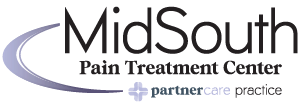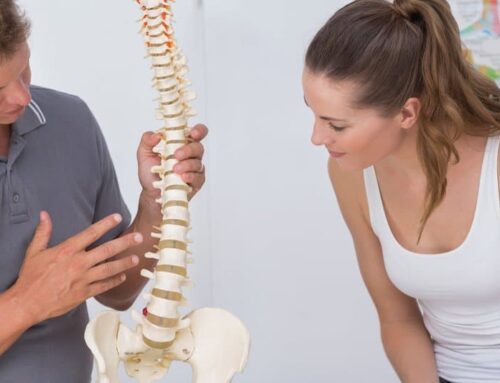Every year, millions of Americans suffer from lower back pain and are diagnosed with a herniated disc.
Back pain can stem from many different causes, including injury, genetics, and even your job. This painful and irritating complication can drastically affect your life, but that doesn’t mean you don’t have any treatment options. While you may not be able to cure a herniated disc, there are several ways you can treat it to reduce your pain dramatically. Read on to learn which option might be best for you.
What is a Herniated Disc?
Roughly 80% of Americans will suffer from lower back pain at some point in their lifetime. A herniated disc is a very common cause of lower back pain. A disc refers to the jelly-like substance between each vertebra along your spinal cord. These soft pads keep the vertebrae in place and support each one in its individual movements, giving your back flexibility.
However, in the case of a herniated or slipped disc, this jelly-like substance is popped out of place. So, when the disc sticks out, the vertebrae lack the support they need to ensure smooth movement. This is, of course, what causes pain to the surrounding nerves or even numbness extending down into the legs. Over time, a herniated disc can drastically reduce mobility and can also create muscle weakness.

What Causes a Herniated Disc?
There can be several causes. In some cases, an injury or accident can cause the surrounding tissue to break, forcing the disc to easily and frequently pop out of its place. Genetics, age, lifestyle, and occupation may also play a role. It is important to address any back pain you feel early on before it results in a herniated disc.
How Do I Know If I Have a Herniated Disc?
How do you know if your back pain is a herniated disc or not? Muscle soreness or stiffness is common, but a herniated disc is much more painful and also requires different treatment and care. You may be suffering from a herniated disc if the nerves around your spine are numb or weak. If you have a pain that radiates from your lower back to your buttocks and down your thigh, muscle weakness, a sudden loss of balance, or pain in your neck and arms, then you may be suffering from a herniated disc.
To be sure, book an appointment with our experts today. Find out if you are suffering from a herniated disc, and begin discussing treatment options that may work best for you.
Can You Cure a Herniated Disc?
In many cases, the pain can be treated so well that patients will think they are cured. However, it is not common for a herniated disc problem to be fully resolved. Still, you can definitely find treatments and live without too many restrictions despite having a herniated disc. There are several treatment options available to help minimize your pain and get you back to living your life to the fullest.

Treatment Options for My Lower Back Pain
Anti-inflammatories: Over-the-counter medications like Ibuprofen can help minimize swelling around the nerves. This is a temporary option that works best at the onset of pain; it will not provide long-term pain relief, but it can help you find some relief during a particularly painful episode.
Opioids: Prescription opioid medications can provide some pain relief. However, it is important to remember that these drugs can be habit-forming and may have other serious side effects as well. Opioid addiction is a crisis in North America and the results of opioid addiction are devastating. While it is a non-surgical option, it can sometimes cause more harm than good. It’s best to speak with a healthcare practitioner and discuss all other options first.
Physical Therapy: This treatment option can be particularly beneficial to back pain sufferers. A physical therapist may offer exercises and stretches to help minimize your discomfort and help your body adapt to its constraints. It is also important to remember that physical therapy is often a lifelong commitment. While you may not visit your practitioner regularly forever, you will need to maintain the exercises they provide you with to ensure lasting comfort.
Radiofrequency Ablation: By sending electrical pulses to the nerves, this treatment option blocks pain receptors from sending pain signals to the brain. The radiofrequency heats the affected area and delivers the pulse to nerves that are pinched or causing your pain.
HF10 Therapy: This type of spinal cord stimulation therapy is the only one that is paresthesia-free and delivers proven results when it comes to controlling and reducing back pain. HF10 therapy involves stimulating the nerves and interrupting the pain signals being sent to the brain. Patients and practitioners are particularly satisfied with the excellent results of such a minimally invasive procedure as HF10 therapy.
How Do I Decide Which Lower Back Pain Treatment Is Right for Me?
Deciding which treatment option is going to be the safest and most effective for you will require the guidance of an experienced medical professional. Each individual’s pain background is different, requiring practitioners to design each patient’s plan uniquely. A pain treatment specialist especially will be able to evaluate which options are best for you, so that together, you can find the treatment plan most likely to provide you with great results.
Don’t let back pain hold you back any longer. Instead, call us today to book an appointment with any of our experienced staff members. Let’s get you on your way to treating your pain and living your life again!





